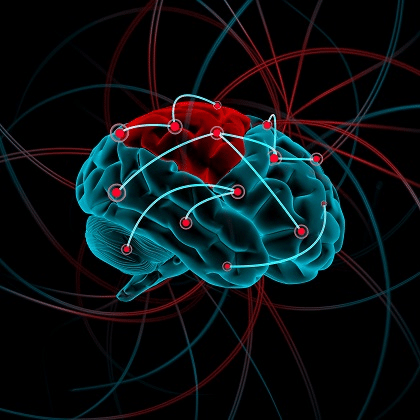New study suggests Palmitoylethanolamide (PEA) could be breakthrough treatment for Alzheimers

A new study has found that N-Palmitoylethanolamide (PEA), a curious organic compound increasingly attracting the interest of medical researchers, greatly reduces symptoms of Alzheimers Disease (AD) in animals.
The study, conducted by scientists from the University of Ferrara in Italy and published in Frontiers, looked at pre-clinical data from both in vitro and in vivo trials using animal subjects.
“…the results of these intensive preclinical experiments propose µm?PEA as a potential therapeutic agent, which could have an impact on the progression of AD, especially when the pathology is at an early stage.”
One of many experiments highlighted in the study involved mice in the early stages of genetically-engineered Alzheimers. The animals were administered PEA regularly and then tested at 3 months and then again at 6 months. The testing involved memory tasks, mazes, contextual learning and object recognition.
As reported by the authors of the study: “PEA significantly improved the short-term memory in 3xTg-AD mice, with no significant effects on long-term memory.”
“Interestingly, µm?PEA also reduced depressive-like behaviors, measured by the tail suspension test and forced swim test, in early-symptomatic, but not in clearly symptomatic, (3-month old)-AD mice, while it counteracted anhedonia-like phenotype of both young (6-month-old) and aging (12-month-old) 3xTg-AD mice.”
3xTg-AD mice have three mutant human genes (APPSwe, PS1M146V, and tauP301L) that closely mimic many aspects of AD in humans.
To date there have been no human clinical trials on the therapeutic effects of PEA in the treatment of AD, however the study authors report an interesting case study of a 67-year old patient with mild cognitive impairment. The patient was treated with PEA for 9 months and at the end of that period testing showed her memory had vastly improved and her neuropsychological evaluation was almost normal.
What is N-Palmitoylethanolamide (PEA)?
N-Palmitoylethanolamide (PEA) is sometimes called the ‘natural painkiller’ and is technically a food product and not a drug. In recent years it has produced very promising results in clinical trials for the treatment of chronic pain. The data has been so impressive that large drug manufacturers are starting to take an interest. The results of a peer-reviewed clinical trial are due to be released by pharmaceutical company, Gencor, later this year.
PEA is a non-endocannabinoid lipid mediator or endogenous fatty acid amide first isolated from egg yolk, soy and peanuts.
Scientists have known about the therapeutic benefits of PEA, particularly for chronic pain, since the 1950s, however the thing that’s been holding it back from wide-spread use is that we still don’t know exactly how it works.
The latest thinking is that it functions by binding itself to a particular receptor in the cell nucleus responsible for the gene networks that control pain and inflammation. By attaching itself to the receptor, scientists believe PEA ‘switches off’ the receptor’s ability to transmit pain.
What sets PEA apart from opioids, codeine, morphine and other painkillers is that, as well as being found in food products, it’s also produced naturally by the human body. It’s what’s called an autacoid which means it’s produced and then used locally in every tissue of the body – it’s an all-of-body effect, not just isolated to one organ. PEA shuts off the source of the inflammation and the source of the pain – in contrast traditional painkillers target just one area of the brain or body focusing on the pain symptom and not the cause.
Unlike other chronic pain medications, no serious side-effects or adverse drug-drug interactions have been reported by users of PEA in current studies.
As it can be found naturally in common foods, in Australia PEA is classified as a food substance and not a drug.
For more information on PEA contact National Custom Compounding on 1300 731 755 or email [email protected].
